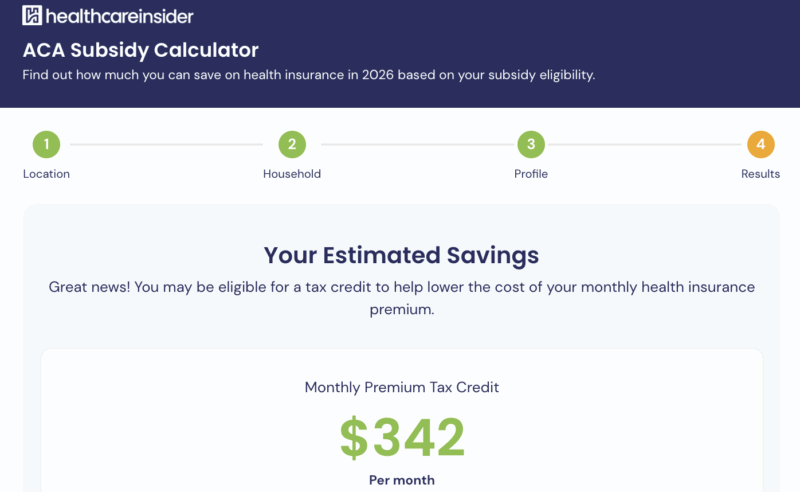Written by Jenifer Dorsey
HealthCare Writer
We want to help you make educated healthcare decisions. While this post may have links to lead generation forms, this won’t influence our writing. We adhere to strict editorial standards to provide the most accurate and unbiased information.
What You Need to Know
- Report changes in income right away so you get the right Obamacare subsidy amount.
- Not all health insurance plans qualify for premium tax credits.
- Doublecheck your tax forms and fill out the right one.
Your premium tax credit eligibility depends in part on your income. So what exactly qualifies as income for Obamacare subsidies?
“It starts with adjusted gross income, which is a line on the 1040 form,” says Lindsey Buchholz, Principal Tax Research Analyst at The Tax Institute at H&R Block. “And then you have to add back to that any tax-exempt Social Security you received, any tax-exempt interest you received, and then any income that was excluded under the foreign income and housing exclusion rules. That’s modified adjusted gross income for purposes of the credit.”
Who Qualifies for Obamacare Subsidies?
Individuals and families whose modified adjusted gross income is between 100% and 400% of the federal poverty level generally qualify for the subsidy. In addition to these income limits, all of the following eligibility requirements apply:
- You must be ineligible for health insurance coverage through an employer or government plan
- You do not file a Married Filing Separately tax return (unless you meet the criteria in section 1.36B-2T(b)(2) of the Temporary Income Tax Regulations)
- You can’t be claimed as a dependent
Premium tax credits may be received in advance to lower monthly health insurance premium payments. You can also claim them when you file your taxes. The best option for you depends on your circumstances and preferences. To hear what the experts say, read our recent post “Should You Take a Tax Credit Now or Later?”
What’s Some Helpful Subsidy Advice?
Here are a few things to keep in mind about the premium tax credit — at tax time, at shopping and enrollment time and, really, at any time.
Report Changes Right Away
If you take an advance premium tax credit, you must report income and family size changes to the exchange or marketplace where you purchased health insurance. This ensures you receive the correct subsidy each month. Failure to report such changes can result in receiving too little or too much subsidy. If you receive more than you are eligible for, you may owe some or all of your premium tax credit back when you file taxes.
Not All Plans Qualify for Subsidies
Only ACA health insurance plans purchased through state exchanges and the federal marketplace qualify for premium tax credits. Coverage you obtain through an employer is not eligible.
Fill Out the Right Tax Form
If you bought health insurance through a state exchange or the federal marketplace, you will have to fill out Form 1095-A, Health Insurance Marketplace Statement. Additionally, you will fill out Form 8962, Premium Tax Credit, to determine your premium tax credit eligibility for the tax year and reconcile that amount with any advance premium tax credit you received.
If you aren’t quite ready to file your taxes but want an idea of what to expect, check out H&R Block’s ACA tax calculator to get a customized impact analysis. The results will provide you with a general idea of how the Affordable Care Act will impact your taxes. This includes how an advanced premium tax credit may impact your tax refund or amount owed when filing.
If you need help preparing your taxes or have questions, a tax professional or tax software can guide you through the filing process. They also help ensure you claim the deductions and credits for which you may be eligible. Most professionals these days have ACA training and are up-to-date on the medical expense deduction.
Next Steps
Use our Obamacare subsidy calculator to estimate your advanced premium tax credit for next year. Whether or not you qualify for a subsidy, you can use HealthCarInsider.com to compare private marketplace options in your area. A licensed health insurance agent from one of our trusted partners can answer your healthcare questions, and help you find the right coverage for you and your family.
Thank you for your feedback!








